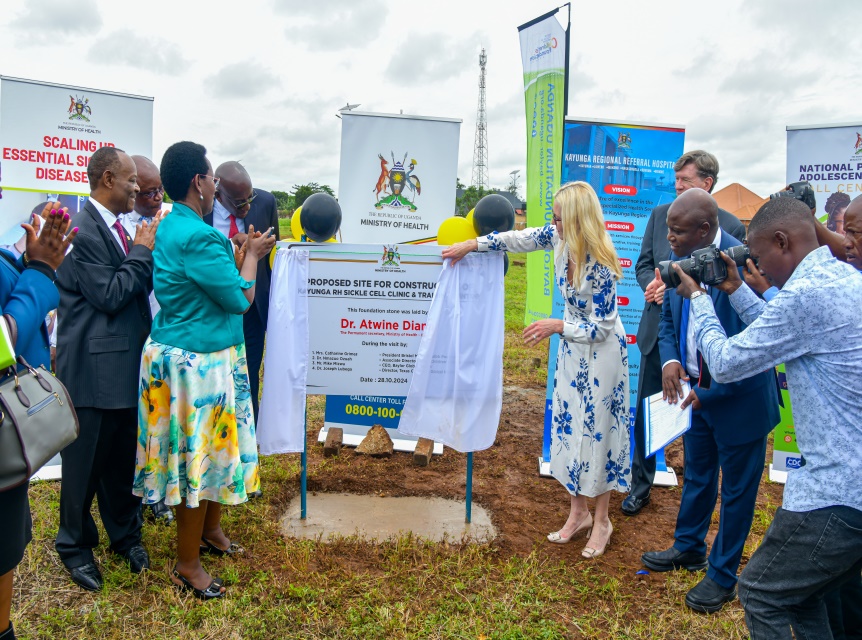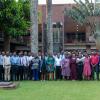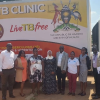Ministry of Health Launches Lifesaving Sickle Cell Care Program at Kayunga Regional Referral Hospital
28th October, 2024: The Ministry of Health, through the Department of National Health Laboratory and Diagnostic Services, has launched a program to integrate and scale up sickle cell disease (SCD) lifesaving care at Kayunga Regional Referral Hospital.
This program, created through a partnership, brings together key stakeholders including the Texas Children's Global HOPE Program, Baylor College of Medicine Foundation Uganda, Makerere University, Uganda Pediatric Association, and Mulago National Referral Hospital. The Bristol Myers Squibb (BMS) Foundation is funding this program, which aims to expand Uganda’s capacity to manage and treat SCD at the grassroots level, particularly in underserved rural areas.
During the launch, Catherine Grimes, President of the BMS Foundation, expressed the foundation’s dedication to addressing the longstanding barriers to healthcare access faced by families affected by SCD in Uganda.
“Families in Uganda know the devastating impact of SCD all too well. For Ugandans living outside of major urban centers, finding care is a significant challenge and sometimes not even possible. This initiative will leverage infrastructure and local health care capacity to integrate lifesaving early stage interventions”, She adds.
The initiative will provide life-changing services, including screening for every infant in Uganda, vaccinations, and preventive measures against fatal infections. Additionally, it seeks to make the lifesaving drug hydroxyurea more widely accessible to reduce complications in children diagnosed with the disease. By ensuring essential SCD lifesaving care reaches even the most underserved communities, the program aligns closely with the Ministry of Health's strategic plan to reduce the overall burden of sickle cell disease in Uganda.
During the launch, PS Dr. Diana Atwine commended the partners calling for all stakeholders emulate Egypt and roll back the SCD by making pre-marital SCD screening mandatory.
“Sickle cell is a hereditary disease which means we can prevent it. Because even when we treat it, it’s chronic, and a lifelong condition and when we let the numbers increase the problem will be continuous and increase burden on the health care system. We need to advocate for pre-marital testing as we did for HIV. Egypt has rolled back SCD and the curve is going down because it’s mandatory to test before marriage,” She emphasized.
The new program is designed to build upon existing primary healthcare systems, integrating sickle cell care services into routine community healthcare. Sickle Cell Disease, a lifelong genetic disorder affecting red blood cells, is a major contributor to childhood illness and mortality in Uganda. Each year, an estimated 20,000 children are born with SCD, and nearly half of these children do not survive past the age of five.




